How long do ferrets live?
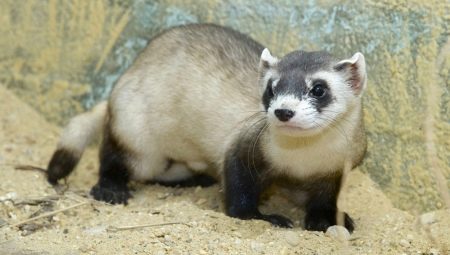
Ferrets are small carnivores, belonging to the weasel family. Many know them as intrusive and uninvited visitors to rural households. There are several main species of these animals: steppe, American ferret and honorik.
Life expectancy in nature
The steppe ferret (often called light or white) is a fairly large species. It grows up to 53–55 cm in length, and its body weight does not exceed 2 kg. The American, or black-footed, ferret is a unique genus of North American carnivores. It is under protection and is listed in the Red Book as an animal in danger of extinction. Its body size is 30–40 cm, and its weight is from 650 g to 1 kg.

The third species - honorik - is a hybrid that was obtained by mating steppe and forest ferrets, as well as minks. The forest ferret is considered domesticated, which is often called the common, dark or black. The size of its body can be up to 50 cm, and its weight - up to 1.6 kg. The animals are nocturnal predators; they rarely dig holes, since they quite often occupy the dwellings of other animals.
The life span of ferrets is not very long, since in nature many dangers lie in wait for them: larger predators, diseases, various wounds, cuts. In addition, animals do not always get enough food.
Therefore, in natural conditions they live only 2-4 years, sometimes reaching the age of 5 years.
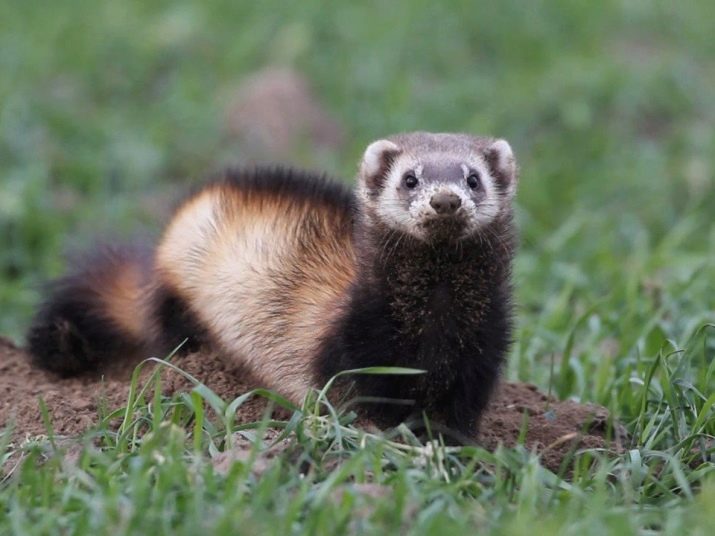
How long do they live at home?
The owners protect their pets from various adverse factors, and with good care, the life expectancy of domestic animals is much higher.
On average, the age of an animal living in captivity can reach 6–10 years, and in rare cases this figure rises to 14 years and even up to 17 years.
Pets can reach this age only with proper care, proper feeding, as well as with systematic veterinary care. There have been cases of ferrets living up to 18 years of age.
Ferrets should be spayed. The procedure is required after 6-8 months from the date of birth. The spayed male will not be rutting, and the females will not be in heat. Rut in males approximately begins at 5–8 months, lasts about six months. These dates can be shifted.
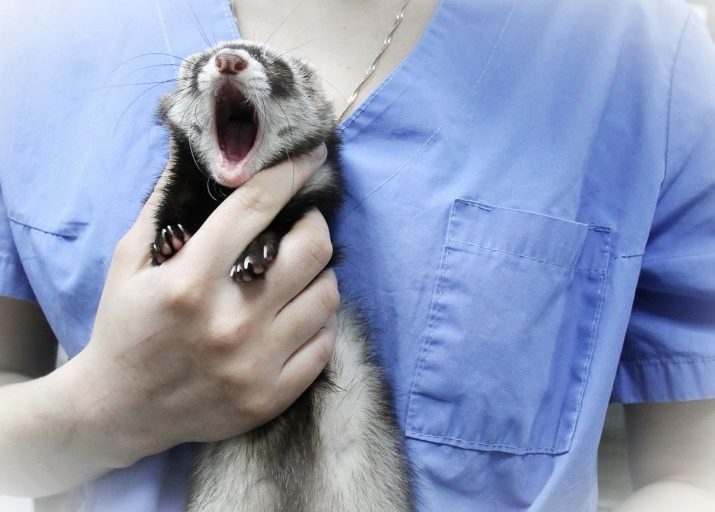
During this period, males have a distinctive feature: they have an unpleasant odor. Ferrets also have behavioral changes. They become aggressive and restless, and begin to mark territory. The structure of the coat is transformed: it looks dirty and stuck together, it may thin out. A number of diseases of internal organs appear, which can lead to the death of a pet.
A distinctive feature of females is that estrus does not stop when mating is deprived. It can last for several months, and this leads to a deterioration in immunity. If left untreated, the pet will die. After sterilization, the behavior of animals changes: they become calm and non-aggressive. It has been proven that in animals that did not have offspring, sterilization leads to an increase in life expectancy.
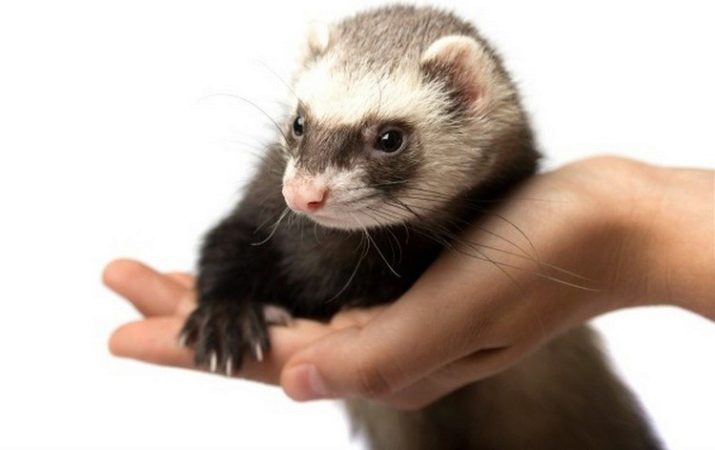
What affects the lifespan?
Heredity plays a huge role in a pet's life. In this regard, when purchasing a ferret, you should ask the owner about the health of the animal's parents. Providing suitable housing conditions can significantly lengthen the pet's life.
So, in order to increase the lifespan of ferrets, great attention must be paid to its nutrition. The body of the animal does not accept plant food well. The basis of the diet should include offal, fish (boneless), raw meat. Products should not contain more than 3% fat. As a treat, you can give a little cottage cheese or cheese. It is strictly forbidden to feed ferrets with fatty, smoked or fried foods, sweets, nuts, chocolate, flour, bakery and confectionery products.

On average, the animal needs 6-10 meals a day, but in small portions. This is necessary if the majority of your ferret's diet is dry food.... If the ferret is given natural products, then it is enough to feed 2-3 times a day, provided that the food contains all the necessary substances: trace elements and vitamins. We must not forget that this is a predator, and it must be provided more often with meat and offal.
Water is one of the most important conditions for a ferret to live. Be sure to make sure your pet has constant access to water, as ferrets are prone to dehydration.
This is especially important when using dry feed. Regarding vitamins, their dosage, composition, it is better to consult a veterinarian.
Proper attention must be paid to hygiene. Ferrets are extremely clean animals. In their cage it is necessary to clean up every day, thoroughly clean the drinking bowl and feeder, and change the litter. The house should always be dry and warm.
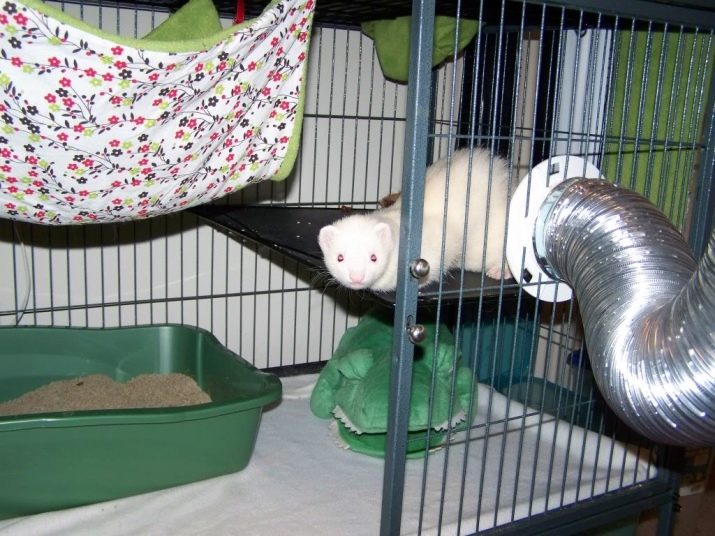
Consider the psychological factor: like all pets, a ferret needs care and affection. Despite the fact that ferrets sleep a lot, they are very curious and energetic pets, they like to play a lot with people and are very attached to their owner. There is no need to yell at the ferret, even if he is to blame for something: it is a lot of stress for him.
It is imperative that the animal be vaccinated. The procedure is repeated every year. Usually 3 vaccinations are needed against the following diseases:
- rabies;
- leptospirosis;
- plague of carnivores.
There are also several vaccinations for common ferret diseases. Your veterinarian will tell you what is necessary for your pet.
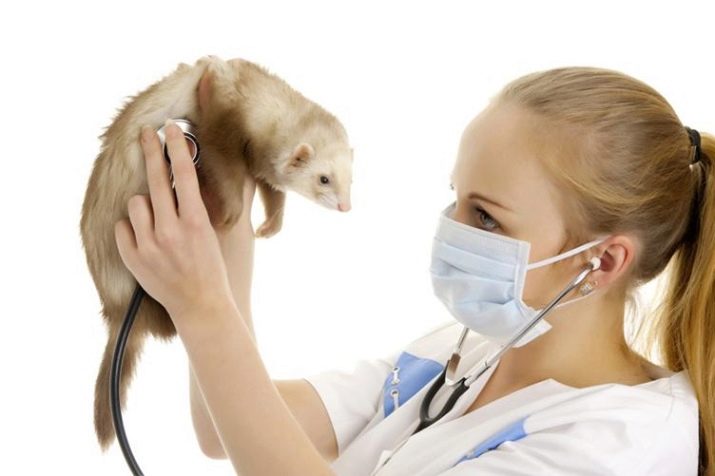
How to properly care for and maintain?
The cage should be purchased.To make it spacious for the animal, its parameters should be at least 80x80 cm, and the gaps between the rods should be no more than 3-6 cm, because ferrets are nimble and energetic. The cage should contain a bowl of water, a house (it cannot be made of glass or plastic), a feeder, a tray. And also the cage should be equipped with various simulators: ladders, climbing pipes, platforms, hammocks, scratching posts. It is best if the cage is several stories high.
You can open the cage and release the ferret only after adaptation to new conditions. The walks should be approximately 2-4 hours long. Before that, you need to remove all things, especially small ones, otherwise a clever and nimble friend will hide everything.
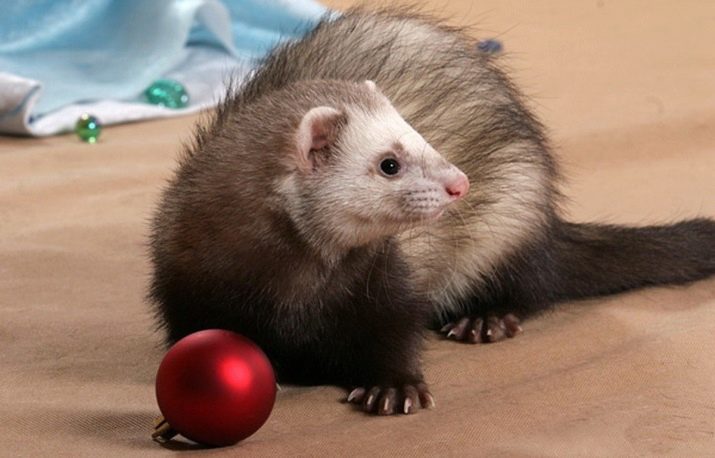
When the ferret grows up, it will be possible not to close the cage, if the owner of the house, so that the pet moves with ease, can run and play pranks. The animal definitely needs movement. He constantly wants to study something, climb into different places and hide there. If the ferret stays in a cage day and night, it will badly affect the state of his body and life span.
In warm weather, it is advisable to take your pet for a walk outside. This is only allowed for adults who are vaccinated. This can be done in winter, the main thing is that there is not a lot of snow and severe cold weather. A special leash is required for walking.
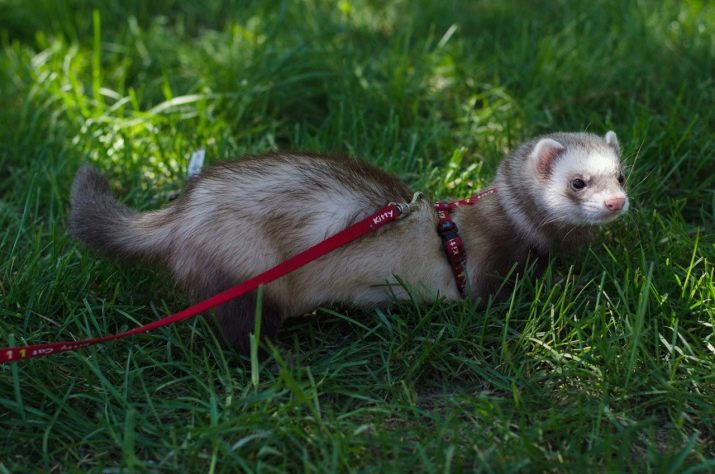
It is necessary to pay special attention to the sleeping place of the ferret. It should be quiet and non-sunny. A terry towel or bike that you are no longer wearing can be used as a bedding.
When leaving your ferret at home, it is best to close it in a cage.
Ferrets love to take water treatments, but after bathing they have a more pronounced characteristic pungent smell. Because of this, pets should be bathed as soon as the coat becomes dirty. Bathing can be done in a not very hot bath or shower. When bathing, use a special shampoo for animals. Be sure to trim your pet's nails every month. This must be done very carefully so that the animal does not get hurt.
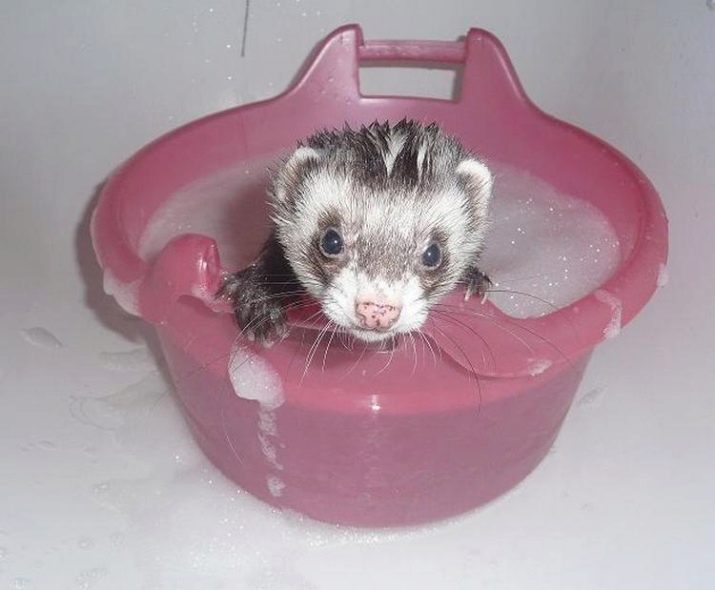
The ferret should clean its ears once a month. The procedure must be carried out using drops or oil specially designed for this. A certain amount of the product is instilled into the ear, and then the dirt is removed with a cotton swab. Cleaning your ears must be done carefully so as not to deform your hearing aid. At the end of the procedure, you need to wipe your ear with a soft cloth.
For about 2 weeks (the timing may vary slightly), the animals undergo molting periods in spring and autumn. At this time, you need to start combing out the old wool. The ferret should not be licked, as this will lead to the filling of the stomach with hair. To avoid problems, it is advisable to give the animal a special paste designed to remove wool. And it is required to add vitamins to the diet, since at this time the ferrets' immunity is very weakened.
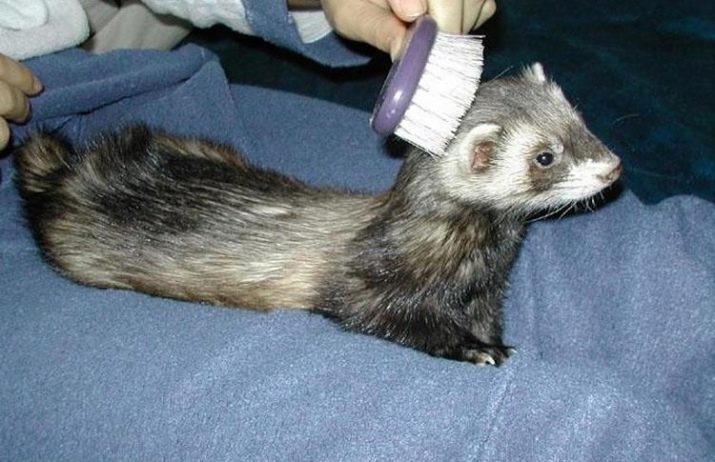
For information on how to care for and keep ferrets in an apartment, see the next video.





